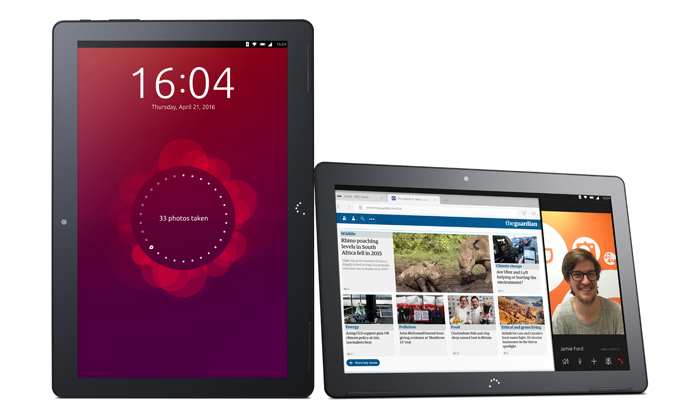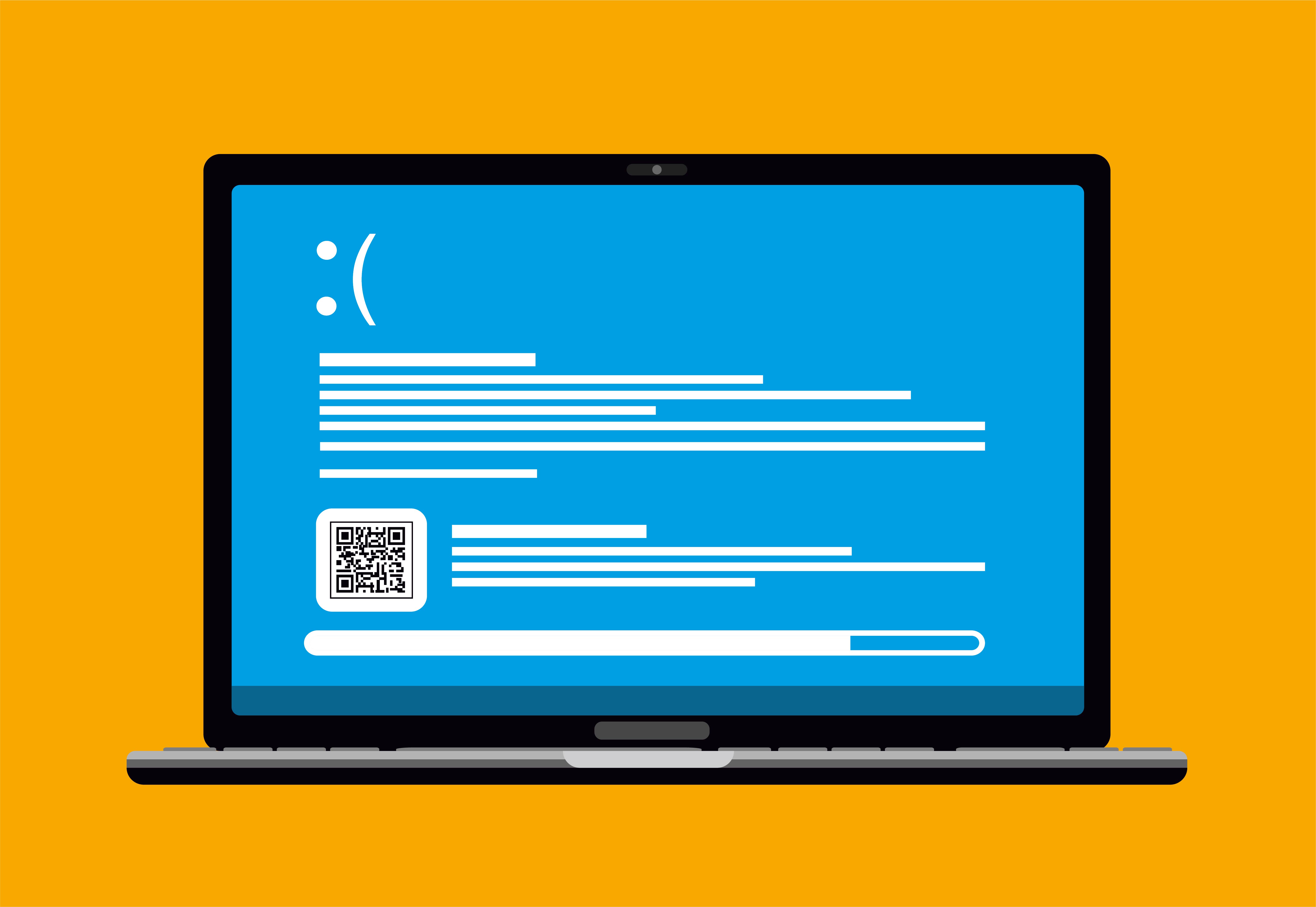Canonical launches first ‘converged device’ for Ubuntu OS
Ubuntu joins Windows 10 and OS X El Capitan with cross-device support

Canonical, maker of Linux-based operating system Ubuntu, has launched its first "fully converged" device, claiming to offer a hybrid smartphone-PC experience.
The Aquaris M10 Ubuntu Edition tablet, produced in partnership with European technology company BQ, features the latest Ubuntu software and an adaptive user experience, which the company says is capable of "providing both a true tablet experience and the full Ubuntu desktop experience".
The tablet represents the first in a new series of devices fulfilling Canonical's long-running project to develop converged devices, which are devices capable of running the same platform and libraries, making it straightforward for users to access the same applications across all their Ubuntu devices.
"Ubuntu is now the only platform that runs both a mobile-based full touch interface and a true PC experience from a single smart device," the company claimed in a statement introducing the Aquaris M10 on its corporate blog.
Jane Silber, CEO of Canonical, said: "We're bringing you everything you've come to expect from your Ubuntu PC, now on the tablet with BQ, soon on smartphones.
"This isn't a phone interface stretched to desktop size it's the right user experience and interaction model for the given situation. Also, in terms of applications, we have something no other OS can provide: a single, visual framework and set of tools for applications to run on any type of Ubuntu smart device."
Beside convergence, headline features of Ubuntu's latest tablet include: access hundreds of apps from the Ubuntu App Store, fluid multitasking and window management, a broad range of desktop apps and thin client support for mobility and productivity, access the underlying OS if desired, mobile messaging on desktop, and security and reliability updates.
Get the ITPro daily newsletter
Sign up today and you will receive a free copy of our Future Focus 2025 report - the leading guidance on AI, cybersecurity and other IT challenges as per 700+ senior executives
The Aquaris M10 Ubuntu Edition tablet has a 10.1in multi-tactile FHD screen with Dragontrail Asahi protection, is powered by a MediaTek quad-core MT8163A 1.5 GHz processor and includes a 7280 mAh LiPo battery. It is 8.2mm thick and weights 470g.
Convergence is not unique to the Ubuntu OS though. Both Apple and Microsoft have sought to bring their mobile, tablet and desktop OSes closer together in the last 12 months. Windows 10 was built with cross-device support specifically in mind, while Apple's continuity feature, which debuted on iOS 8 and OS X 10.10 Yosemite, enables users to open the same documents on their iPhone and Mac.
Today's announcement therefore brings Ubuntu in line with such competitors.
Canonical believes the convergence present its new Ubuntu OS and tablet make it ideal for enterprise use, because it offers enterprise-grade, system-based security.
Built on the open-source Linux OS, and continuing the principle of openness, Ubuntu has been adopted by public sector departments and hobbyists. Its total number of users can only be estimated, but Canonical said in 2015 that it has over 40 million desktop users.
-
 Bigger salaries, more burnout: Is the CISO role in crisis?
Bigger salaries, more burnout: Is the CISO role in crisis?In-depth CISOs are more stressed than ever before – but why is this and what can be done?
By Kate O'Flaherty Published
-
 Cheap cyber crime kits can be bought on the dark web for less than $25
Cheap cyber crime kits can be bought on the dark web for less than $25News Research from NordVPN shows phishing kits are now widely available on the dark web and via messaging apps like Telegram, and are often selling for less than $25.
By Emma Woollacott Published
-
 Linux just hit an all-time high share of the global desktop market — and surging popularity in India is driving uptake of the open source operating system
Linux just hit an all-time high share of the global desktop market — and surging popularity in India is driving uptake of the open source operating systemNews Linux is still dwarfed by operating systems such as Windows, but it’s making modest gains off the back of growing popularity in emerging markets
By Steve Ranger Published
-
 Linux Blue Screen of Death gives users a taste of the dreaded Windows feature
Linux Blue Screen of Death gives users a taste of the dreaded Windows featureNews The Linux Blue Screen of Death has been added in a recent update
By Ross Kelly Published
-
 Tiny11 review: Windows 11 with only 2GB of RAM
Tiny11 review: Windows 11 with only 2GB of RAMReview A version of Windows 11 for older machines that don't meet the full requirements
By Nik Rawlinson Published
-
 Red Hat Enterprise Linux becomes foundational operating system for Cohesity Data Cloud
Red Hat Enterprise Linux becomes foundational operating system for Cohesity Data CloudNews New strategic partnership between Red Hat and Cohesity aims to drive innovation in the data security and management space
By Daniel Todd Published
-
 Ubuntu shifts to four-week update cycle
Ubuntu shifts to four-week update cycleNews Critical fixes will also come every two weeks, mitigating the issues involved with releasing prompt patches on the old three-week cadence
By Richard Speed Published
-
 AlmaLinux follows Oracle in ditching RHEL compatibility
AlmaLinux follows Oracle in ditching RHEL compatibilityNews Application binary compatibility is now the aim with 1:1 now dropped
By Richard Speed Published
-
 How big is the Windows 10 cliff-edge?
How big is the Windows 10 cliff-edge?ITPro Network With some comparing the upcoming Windows 10 end of life to Windows XP, we ask members of the ITPro Network for their insight
By Jane McCallion Published
-
 Everything you need to know about the latest Windows 11 updates - from bug fixes to brand-new features
Everything you need to know about the latest Windows 11 updates - from bug fixes to brand-new featuresNews Two new cumulative updates are on the way and will be installed automatically on Windows 10 and Windows 11 machines
By Rory Bathgate Published